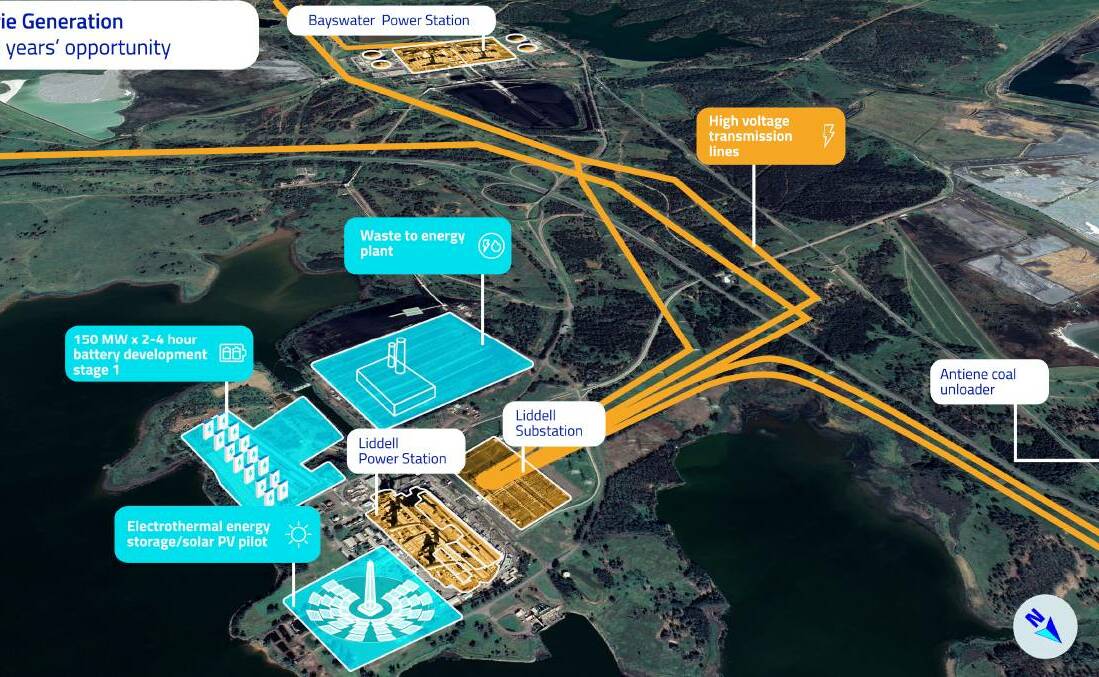
AGL employees and their communities must be among the top priorities in any restructure or revised time frame for the closure of coal-fired generators, Hunter business and employment advocates argue.
The 180-year-old utilities giant's future was uncertain on Monday night after it dumped a proposed demerger, conceding defeat in the face of a concerted campaign led by its largest shareholder Mike Cannon-Brookes.
The company will also clear out several senior management and board roles, including chief executive Graeme Hunt and chairman Peter Botten, in a major upheaval of the country's biggest coal generator and greenhouse gas emitter.
Liddell Power Station will close next year while Bayswater, which employs 620 people, is due to close between 2030 and 2033.

Hunter Jobs Alliance coordinator Warrick Jordan said Hunter communities that are economically dependent on the generators must be fully engaged about any decision to revise the existing time frames for closure.
"This is obviously a really fluid situation. There's a high stakes game being played out in the boardrooms and corporate offices, but the question that needs to be asked is what does this mean for workers, communities, and power users in the Hunter?," Mr Jordan said.
"Politicians have learnt some hard lessons about listening to communities in the middle of changes in the energy system.
"Corporate Australia, whatever direction they are coming from, needs to be aware of these lessons."
"Whoever ends up running the show at AGL, listening to and prioritising the needs of workers, communities and regional industries has to be at the top of the to-do list."
State and federal governments are under increasing pressure to provide more support to communities experiencing unprecedented social and economic changes as they transition to clean energy economies.
The mayors of Singleton and Muswellbrook recently urged both governments to "get their arses up here" and speak with affected communities.
Power and the passion: A Herald series

As part of its existing transition strategy, AGL plans to turn the land occupied by Bayswater and Liddell power stations into a low-carbon industrial energy hub, known as the Hunter Energy Park.
The company received state government approval in March to build a 500 megawatt grid-scale battery on the Liddell site. It also signed a memorandum of understanding with Fortescue Future Industries in December last year to conduct a 12-month feasibility study into the production of green hydrogen.
Business Hunter chief executive Bob Hawes said he hoped the new AGL board would support ongoing developments in the Hunter's renewable energy and technology sector.
"There is a lot of momentum in the renewable and clean energy market across the Hunter, and we would hope that the scale of development continues to include major parties like AGL. The Hunter has a range of projects across multiple platforms and locations. We need all of these to move forward if we are to realise our ambition to move from non-renewable to renewables sources of reliable and affordable power," he said.
Greenpeace Australia Pacific senior campaigner Glenn Walker said the failure of AGL's demerger reflected the lack of vision of its leadership team.
"They failed to listen to the huge number of investors voting for a climate resolution at its last AGM. They failed to understand the shifting political landscape on climate action. They failed to keep up with competitors, or the shift of their biggest customer Rio Tinto towards renewables," he said.







